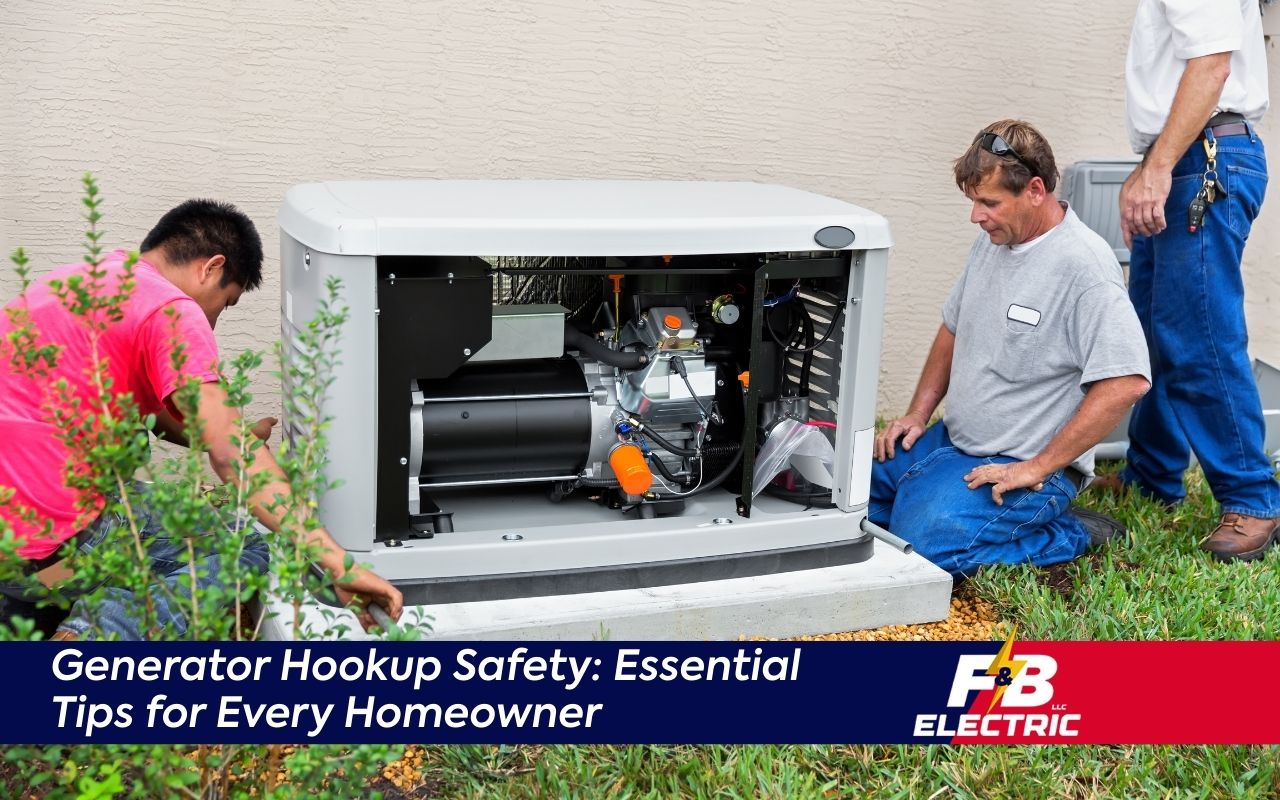
During a stormy night, a generator provides comfort and relief. However, generator hookup safety is essential to prevent accidents and hazards.
Improper installation can lead to electrical fires or carbon monoxide exposure. Therefore, understanding safe practices is critical for every homeowner.
This guide explains key tips and precautions to maintain generator hookup safety in Maryland and beyond. Stay informed to protect your home.
Importance of Proper Generator Setup
Proper setup is the foundation of generator hookup safety. Correct installation prevents malfunctions during outages and ensures steady voltage output.
It reduces the risk of electrical shocks, overloads, and fires. Additionally, proper setup maintains your generator’s lifespan and reliability.
Following local building codes, permits, inspections, and professional hookups safeguards your family and emergency responders. Skipping steps may result in fines or voided warranties.
Selecting the Right Location for Your Generator
Choosing the right spot is critical for generator hookup safety. Maintain 10 to 20 feet from windows, doors, and air intakes to avoid fumes.
Use firm, level surfaces like concrete pads or gravel beds for stability. Avoid flood-prone areas and consider fuel delivery paths for safe refueling.
Ensuring Proper Ventilation
Proper ventilation prevents overheating, shutdowns, and dangerous exhaust buildup. Adequate airflow reduces fire risk and ensures smooth operation.
Maintain at least three feet of clearance on all sides. Install generators outdoors, avoiding garages or basements, even with doors open.
Following manufacturer and local code guidelines keeps your home safe and prevents harmful carbon monoxide accumulation.
Proper Electrical Connections and Grounding
Correct wiring and grounding are essential for generator hookup safety. Install a transfer switch to isolate your home from the utility grid.
Transfer switches prevent backfeeding, protect line workers, and ensure seamless power during outages. Grounding rods with heavy-gauge copper wires reduce shock risk.
Inspect connections regularly for corrosion or wear. Proper grounding and transfer switch installations protect both your household and utility personnel.
Fueling and Storing Your Generator Safely
Store gasoline, diesel, and propane in cool, ventilated areas away from heat sources. Use approved containers and clearly label them.
Turn off the generator before refueling and allow cooling for 15 minutes. Clean spills immediately and dispose of rags safely. Propane systems require leak checks.
Regular Maintenance Checks and Inspections
Schedule inspections at least twice a year. Check oil, coolant, battery, air filters, and spark plugs for proper function. Replace worn parts promptly.
Load test your generator to verify transfer switch and critical circuit engagement. Regular maintenance reinforces generator hookup safety and reliability.
Understanding Carbon Monoxide Risks
CO is a silent threat produced by fuel-burning generators. Symptoms include headache, dizziness, nausea, and confusion. Awareness is key for generator hookup safety.
Install battery-powered CO detectors near sleeping areas, test monthly, and replace batteries annually. Keep windows slightly open when running a generator indoors for prolonged periods.
FAQs
What is generator hookup safety?
Generator hookup safety refers to correct installation, grounding, ventilation, and fueling practices to prevent accidents and carbon monoxide hazards.
Do I need a licensed professional for installation?
Yes. Only licensed electricians can safely install transfer switches and ensure compliance with generator hookup safety standards.
Where should I place my generator?
Generators should be outdoors, 10-20 feet from doors, windows, and air intakes to prevent carbon monoxide exposure.
How often should maintenance be performed?
Inspect generators at least twice yearly, checking oil, coolant, battery, air filters, and spark plugs to maintain safe operation.
Can improper hookup cause fires or shocks?
Yes. Incorrect wiring, grounding, or fuel handling can lead to fire, electrical shock, or equipment damage.
Prioritizing Generator Hookup Safety
Generator hookup safety should never be ignored. Correct setup, location, ventilation, and electrical connections protect your family.
Follow manufacturer instructions and local codes for reliable operation. For professional assistance, contact F & B Electric LLC today.
For expert electrical services and safe installations, explore our services or Electrical Services in Columbia, MD.
